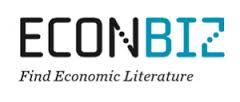Analytical Study on Emotional Intelligence and Its Impact on Stress Management Among Woman Nurses in Healthcare Sector
DOI:
https://doi.org/10.26703/jct.v16i1.31Keywords:
Emotional Intelligence, Self Emotion, Stress Tolerance, Impulse Control, Stress ManagementAbstract
According to the World Health Organization, stress is a major concern of modern period and influences both physical as well as the mental health of individuals. Stress in the workplace can impact healthcare practitioner's physical and emotional health by limiting their productivity and adversely affecting their overall quality of life. The study is undertaken with a purpose to examine the components of Emotional Intelligence and its impact on Stress Management of Woman Nurses working in hospitals located in National Capital Region (NCR), India. The author(s) carried out a blend of both qualitative and quantitative study through a structured questionnaire. The emotional intelligence of woman nurses was assessed via the Bar-On Emotional Quotient Inventory. A Snowball Sampling approach of Non-Probability Sampling was used. In order to analyse the data, Descriptive and Inferential statistical tools were used. Research hypotheses were reviewed using a structural equation model. The final sample size was (n=369). The findings confirm that Emotional Intelligence impacts substantially on stress reduction. The results indicate four components viz. Appraisal of Self-Emotion, Appraisal of Other's Emotion, Regulation of Emotion and Usage of Emotion contribute to Emotional Intelligence. Out of four components, Usage of Emotion strongly influences the Emotional Intelligence than other components. Emotional Intelligence impacts significantly on stress reduction. For the healthcare organisations to develop a healthy and stress free atmospheres for their employees. Findings would be instrumental and bring new insights into the emotional intelligence concept in respect of stress management of employees.
Downloads
References
Bar-On, R. (1997). “Development of the Bar-On EQ-I: A Measure of Emotional Intelligence', Paper presented at the 105th Annual Convention of the American Psychological Association, August, Chicago.
Bar-On, R. (1997), “The Emotional Intelligence Inventory (EQ-i): Technical Manual”, Multi-Healthy Systems, Toronto, Canada.
Bar-On, R. (2000), “Emotional and Social Intelligence: Insights from the Emotional Quotient Inventory”, In R. Bar-On, and J.D.A. Parker, (Ed.), The Handbook of Emotional Intelligence, Jossey-Bass, San Francisco, pp.363-388.
Berges, M.B. and Augusto, J.M. (2007), “Exploring the relationship between perceived emotional intelligence, coping, social support and mental health in nursing students”, Journal of Psychiatric and Mental Health Nursing, Vol.14 No. 2, pp. 163-171.
Cattell, R.B. (1966), “The scree test for the number of factors”, Multivariate Behavioural Research, Vol.1 No.2, pp. 245-276.
Dawda, D. and Hart, S.D. (2000), “Assessing Emotional Intelligence : Reliability and vValidity of the Bar-On Emotional Quotient Inventory (EQ-i) in university students”, Personality and Individual Differences, Elsevier, Vol. 28 No. 4, pp.797-812.
Goleman, D. (1995), Emotional Intelligence: Why it can matter more than IQ, Bantam, Newyork.
Guba, E. G. and Lincoln, Y. S. (1994), Competing Paradigms in Qualitative Research Handbook of qualitative research, Sage, London.
Horn, J. L. (1965), “A Rationale and Test for the Number of Factors in Factor Analysis”, Psychometrika, Springer, Vol. 30 No. 2, pp.179-185.
Ismail, A.B., Ajis, M.N. and Dollah, N.F. (2009), “Relationship between Work related stress, Emotional Intelligence and Job Performance: An Empirical Study in Malaysia”. Theoretical and Applied Economics, Vol. 10 No. 539, pp. 3-16.
Levin, DM. (1988), The opening of vision, Nihilism and the postmodern situation, Routledge, London.
Martins, A., Ramalho, N., & Morin, E. (2010). A comprehensive meta-analysis of the relationship between emotional intelligence and health. Personality and Individual Differences, Elsevier, 49, 554.
Mayer, J.D. and Salovey, P. (1990), “Emotional Intelligence”, Imagination, Cognition and personality, Vol.9 No. 3, pp. 185-211.
Mayer, J. D. and Salovey, P. (1997), “What is emotional intelligence?” In P. Salovey & D. Sluyter (Ed.), Emotional Development and Emotional Intelligence: Implications for Educators, New York, pp. 3-31.
Newsome, S., Day, A.L. and Catano, V.M. (2000), “Assessing the predictive validity of emotional intelligence”, Personality and Individual Differences, Elsevier Vol.29 No. 6, pp. 1005-1016.
Ogniska, N. (2005), “Emotional intelligence in the work place; Exploring its effects on occupational stress and health outcomes in human service workers”, International Journal of Occupational Medicine and Environmental Health, Vol.18 No.2, pp. 167-175.
Palmer, B.R., Manocha, R., Gignac, G., and Stough, C. (2001), “Examining the factor structure of the Bar-On Emotional Quotient Inventory with an Australian general population sample”, Personality and Individual Differences, Sage, Vol.35 No.5, pp.1191-1210.
PIB. (2020), Indian Healthcare Industry Report, Department for Promotion of Industry and Internal *rade (DPIIT), RNCOS Report.
Singh, S.K. and Singh, S. (2008), “Managing role stress through Emotional Intelligence, A study of Indian Medico Professionals”, International Journal of Indian Culture and Business Management, Vol.1 No. 4, pp. 377-396.
Rahim, H.M. (2010), “Emotional Intelligence and Stress: An Analytical Study of Pakistan Banks”, International Journal of Trade, Economics and Finance, Vol. 1 No. 2, pp. 194-199.
Schutte, N.S., Malouff, J.M., Thorsteinsson, E.B., Bhullar, N., and Rooke, S.E. (2007), “A meta-analytic investigation of the relationship between emotional intelligence and health”, Personality and Individual Differences, Elsevier, Vol. 25 No.6, pp. 921-933.
Tellegen, A., Ben-Porath, Y.S., McNulty, J.L., Arbisi, P.A., Graham, J.R., and Kaemmer, B. (2003), “The MMPI-2 Restructured Clinical (RC) scales: Development, validation and interpretation” , University of Minnesota Press, Minneapolis.
Tellegen, A., and Ben-Porath, Y.S. (2008), “MMPI-2-RF Technical Manual”, University of Minnesota Press, Minneapolis.

Downloads
Published
Issue
Section
License
Copyright (c) 2021 Dr. Ekta Verma, Avinash Singh

This work is licensed under a Creative Commons Attribution 4.0 International License.










